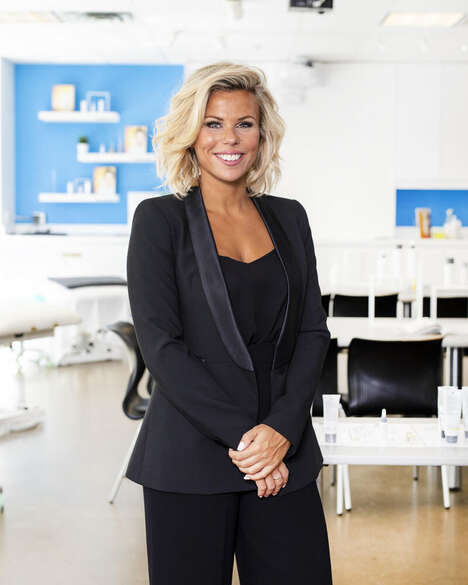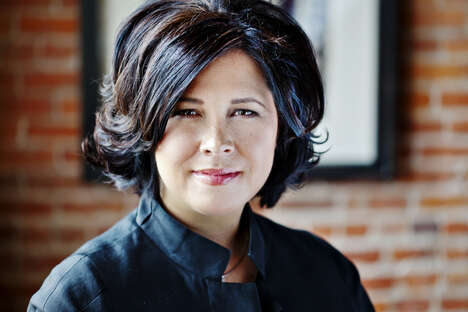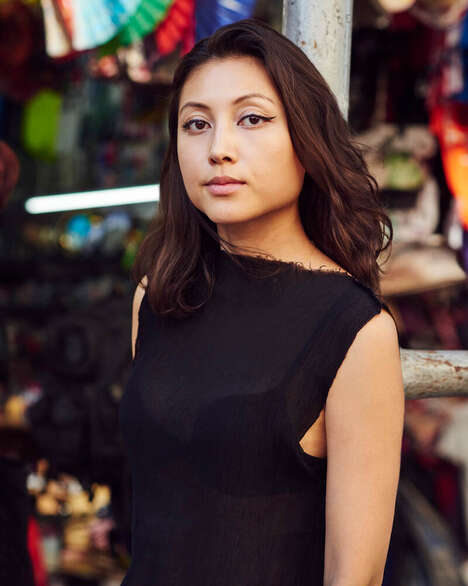Educational Values in Skincare
An Interview with Lindsay Barras, Dermalogica's Educational Manager (GALLERY)
Related Trend Reports
Activism, Art & Design, Branding, Business, Drinking, Food, Lifestyle, Marketing, Pop Culture, Retail, Social Good, Social Media, Tech




Trend Hunter spoke to Lindsay Barras – the company’s Educational Manager, about the importance of science-backed skincare, Dermalogica’s innovation process, and how this ties into the preferences of the modern-day consumer.
How does Dermalogica stay on the cusp of skincare innovation?
We always want to be the first ones to market new innovations, products and ideas. At the same time, we strive to address a need and a gap in the industry. Our focus is more on that than referencing what is trendy. Dermalogica was created by a skin therapist for skin therapists. We are really rooted in that. We have thousands of skincare therapists across the world who we actively pull information from because they are the ones who literally have their hands on our key demographic. They are the ones that see the impact that this changing environment, new services, and innovations have on the skin. They are the ones that can provide feedback and opportunities. When we identify the gaps and the demand, we look toward that network.
Dermalogica is really about the health of the skin. It’s a big area of opportunity. We really want to look at innovative ingredients and how we can get those ingredients into the skin. We are deeply rooted in the health of the skin and we want to make sure that the skin barrier is not compromised and is always intact. A lot of the times, our innovation comes from the delivery roots -- how we are getting those products and those active ingredients into the skin.
That’s kind of where our focus and our mindset really evolve. At our head office in LA, we have a full team of people in innovation, branding, etc. These people are constantly ahead of the game and seeing where new trends are coming from. They play off that with the need in our industry.
What are the broad strokes of product development in your company?
We are currently workshopping ideas for 2023. So, new innovations and new products are working concepts for years. We have an idea, ingredients or a plan of what we want to do with the skin and then have this working concept. Again, we are using skin therapists, floating the idea near them, or we come to them with the product and see how we can use it in services, in treatments and other procedures.
Once the working concept goes through these stages, then the product goes through multiple rounds of stability, temperature and proctor testing. Then it's onward to the packaging – how can we package it, so we get the correct amount of dose. From there, we do our scientific testing and really probe with different biomarkers on the skin, with before and after visuals.
If we realize that there is no way for us to create a stable formula to drive synergy between the ingredient and the targeted skin area, then we scratch that idea. It is a really exciting process, but it can be very disheartening.
How does skincare education play into the market?
Dermalogica started as an education company. Our founder, Jane Wurwand, was a skin therapist and she realized that there was no continuing education for skin therapists to really progress and elevate their knowledge. So, she started the International Dermal Institute in the States. She also began these different education centers all around the country, where she would train skin therapists hands-on about the skin and different ingredients. Afterward, she saw an opportunity for creating a skincare line by skin therapists for skin therapists. That is how Dermalogica came about.
Hence, education has been rooted in our business since day one. We still have education centers all around the world. We have three in Canada, our biggest one is in Toronto. We have one in Vancouver and one in Montreal. We reach thousands of skin therapists through education and they come in to learn about the skin and the ingredients, but also how to communicate and how to reach their clients. A lot of the time, with these really sophisticated, high-quality products, if you’re not understanding how to properly use them, you actually do some damage to your skin. It is really important for a skin therapist to be able to educate their clients about the importance of a proper skincare routine.
For products that are a little bit higher priced, it is about understanding the value behind them. To really get the result you are looking for, you do need products that are high-quality and very sophisticated with their innovations.
Hence, the importance of education goes beyond understanding why you need to buy it. It’s about really understanding the holistic approach of creating the healthiest skin that you can achieve an understanding that you can’t just buy an anti-aging product. To really be able to maintain and enhance the results that you are going to get from that anti-aging product, you need to be using sunscreen or a vitamin-C serum to protect your skin from what caused the damage in the first place.
How do consumer preferences and purchasing decisions inform Dermalogica product launches?
We are not going to invest in studies and innovations if we know it’s not of interest to many consumers. But at the end of the day, we understand skin. Going through our whole innovation process, we are getting feedback from skin therapists from all around the world about what is needed that we don’t have or what we do have and how we can make it better. It’s a mixture of both consumer preferences and purchasing decisions that really drive us. Right now, our primary way of gaining insight is through experienced skin therapists, however, we are constantly finding ways to educate the consumer. That is something Dermalogica is really investing in in the upcoming year.
How does the new product line contribute to Dermalogica's existing offerings?
Dermalogica is really known in the industry for being a universal line. We have something for everybody and our goal is to have consumers reach their healthiest skin. We have a line for adult acne that is switching to our Active Clearing range. We really are revamping the line with two new products that we are launching next week. These new offerings are developed because we saw that adult acne is so prevalent and on the rise. But now, there is also a correlation to aging; that adult acne really accelerates visible signs of aging. Skin issues are never mutually exclusive. It’s a balancing game of how you can address different concerns that go hand in hand. We saw that opportunity and switched our lines to be able to address not just adult acne but also visible signs of aging.
References: dermalogica, linkedin
Featured Articles

The Social Entrepreneur Revolution
We Asked Gary Vaynerchuk What Goes into 'Crushing It!'

Leading Sustainable Change
We Spoke with Bex Almqvist to Find Out More About The Green Hustle

Innovating with the Future
Ford's Futurist, Sheryl Connelly Discusses Implementing Positive Change

The Digitization of Mental Health Care
We Spoke to Sam Duboc About BEACON's Mental Health Approach

The Impact of Surrounding Space
An Interview with Christine Dovey, a Published Stylist & Designer

Design-Forward Cannabis Retail
VP of Creative, Berkeley Poole Expands on Tokyo Smoke's Strategy

Making Retail Memorable
We Spoke with Branding Expert Ali Craig to Find Out Where Sears Went Wrong

Using Creativity to Re-Define a Genre
George Egg, Stand-Up Comedian and Anarchist Cook

Authentically Documenting Family Life
Mario Lopez Discusses His YouTube Channel, Family & Food